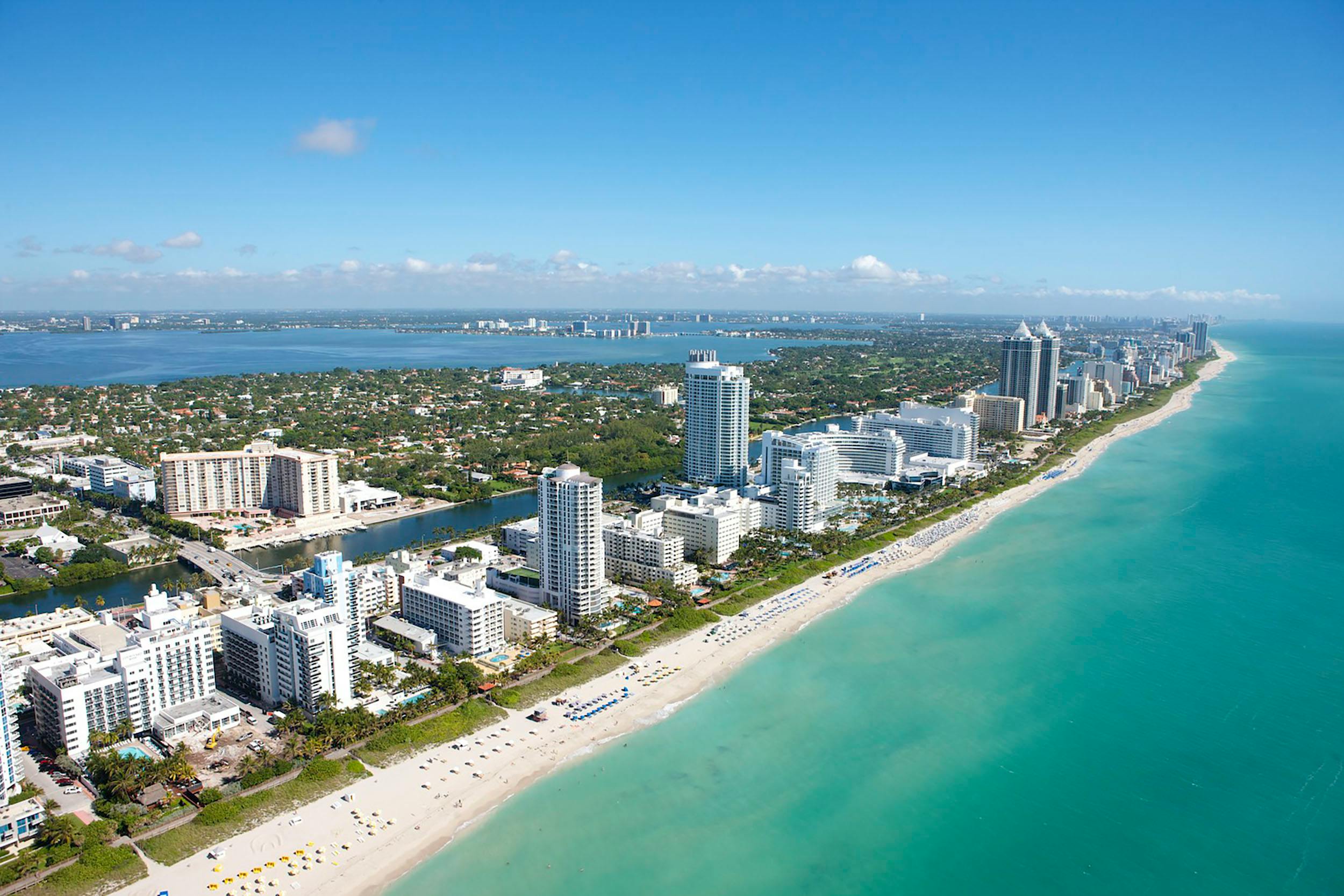
A new chill is sweeping through Florida’s typically sunny real estate market, and it’s coming from the north. Canadian homeowners, historically among the largest foreign investors in U.S. property, are rushing to sell their Florida homes amid mounting trade friction, escalating tariff wars, and a weakened Canadian dollar that has made property ownership more expensive than ever. What began as economic uncertainty has evolved into an exodus that threatens to reshape Florida’s housing market and economy.
The Perfect Storm: Multiple Pressures Converge
Douglas Elliman’s Florida director of luxury sales Senada Adzem reports a huge uptick in Canadian clients calling to list their properties just as the season is starting, with sellers believing it’s the perfect time to sell. This surge in listings isn’t coincidental; it reflects the convergence of several powerful forces that have fundamentally altered the calculus for Canadian property owners.
The tariff situation has escalated dramatically. President Trump imposed an additional 10% tariff on Canadian imports on top of an already existing 35% levy, 25% automotive surtax, 40% transshipment penalty, and new immigration registration rules for Canadians in the U.S. These measures came after Trump canceled trade negotiations with Canada following political disputes, creating an atmosphere of uncertainty that has left Canadian homeowners deeply unsettled.
Adzem notes that Canadian clients feel the overall tension between Canada and the United States regarding negotiations and economic policies creates definite concern. The trade conflict extends beyond mere economics; it has created a psychological burden for property owners who once viewed their Florida homes as winter sanctuaries but now see them as symbols of a deteriorating bilateral relationship.
The Currency Crisis and Cost Burden
Perhaps the most concrete challenge facing Canadian property owners is the dramatic weakening of the Canadian dollar. The Canadian dollar has been hovering near a 22-year low against the U.S. dollar, making everything from HOA fees to property taxes more expensive. This currency depreciation has transformed what was once affordable into a financial strain.
When it comes to the costs of carrying U.S. real estate with Canadian dollars, which has had significant fluctuations against American dollars, many snowbirds feel it’s gotten quite costly to continue enjoying their winters in Florida. Every property tax bill, homeowners association fee, insurance premium, and maintenance expense now costs significantly more when converted from Canadian dollars, eroding the value proposition that once made Florida properties attractive.
The timing couldn’t be worse. Homeowners association fees and insurance costs have surged, especially in Florida. Florida’s insurance crisis, driven by hurricane risks, climate change concerns, and a troubled insurance marketplace, has sent premiums skyrocketing. When combined with currency weakness, these increased costs have pushed many Canadian owners past their breaking point.
Miles Zimbaluk, an Arizona-based Realtor offering cross-border real estate guidance, notes that people are cashing in now and taking that dollar back to Canada and converting it to Canadian dollars. The logic is clear: sell now at relatively high U.S. home values, convert proceeds to Canadian dollars at today’s exchange rate, and escape what many see as an increasingly untenable financial situation.
The Welcome Wears Thin
Beyond economics, something more intangible but equally powerful is driving Canadian sellers: they simply don’t feel welcome anymore. Canadian clients express a perception that they don’t feel as welcome in the United States, though Adzem reassures them this isn’t the case, noting that sometimes perception feels like reality.
This sentiment isn’t imagined. As trade tensions grow between the two countries, many Canadians have taken the conflict to heart, loudly booing “The Star-Spangled Banner” at sporting events and boycotting U.S.-made products. The acrimony flows both directions, creating an atmosphere where what was once a friendly bilateral relationship now feels strained and uncertain.
Stephen Fine, president of Snowbird Advisor, says many members feel “angry, upset, disappointed and frustrated,” with a number considering alternative destinations to the U.S. next year and some wanting to sell their U.S. properties. Trump’s rhetoric about making Canada the 51st state, while perhaps not meant seriously, has struck a deeply negative chord with Canadians who view such comments as disrespectful and destabilizing.
The Trump administration’s new requirement that Canadians staying in the U.S. for longer than 30 days must register with immigration authorities adds another layer of complexity and concern. For snowbirds who traditionally spent extended winters in their Florida homes, this administrative burden feels like an unwelcome hassle in what should be a relaxing seasonal retreat.
The Market Impact: From Trickle to Flood
The numbers tell a striking story. Alexandra DuPont, a broker helping snowbirds buy and sell Florida condos, is working with about 35 Canadian sellers, more than three times the usual for this time of year, and no buyers. This dramatic imbalance between sellers and buyers signals a fundamental shift in market sentiment.
In Scottsdale, Arizona, Canadian property listings jumped from around 100 in early 2024 to nearly 700 in the first quarter of 2025, while new Canadian buyers dropped by 40%. While Arizona isn’t Florida, the pattern suggests a broader retreat from U.S. vacation property markets that transcends any single location.
The urgency is palpable. Some clients want to sell at any cost, even at a loss, while rental properties have experienced a steep decline in demand this year, with one agent noting that the Canadian rental market “is just done”. This desperation to exit the market, even accepting losses, indicates that many Canadian owners view their properties as liabilities rather than assets.
Recent survey data confirms the scale. According to a Royal LePage survey, more than half (54%) of Canadians who currently own residential property in the U.S. say they are planning to sell within the next year, with a majority (62%) crediting the current political administration as the main reason. If even half of these stated intentions materialize, Florida could face a significant influx of Canadian-owned properties hitting the market.
The Broader Economic Ripple Effects
The Canadian retreat from Florida real estate extends beyond simple property transactions. America’s northern neighbors make up 11% of foreign homebuyers on average over the past decade, with Florida attracting the most Canadian buyers, followed by Arizona and California. This represents billions of dollars in real estate investment and economic activity.
While wealthy buyers from China and other nations purchase expensive properties in major cities as investments, Canadians actually live in the neighborhoods where they buy, shopping locally, dining out, volunteering and joining pickleball leagues. Their departure wouldn’t just remove properties from individual portfolios; it would extract engaged community members who contribute meaningfully to local economies.
Canadians are the top foreign home buyers in the U.S., and 41% of them purchase property in Florida. This concentration makes Florida particularly vulnerable to any significant Canadian retreat. The impacts would ripple through retail, restaurants, healthcare services, and countless other sectors that have come to depend on seasonal Canadian residents.
Airlines have reportedly reduced seat capacity between Tampa International Airport and Canadian cities by 12%, suggesting that the retreat extends beyond property ownership to broader tourism and travel patterns. This reduction in flight capacity both reflects and reinforces declining Canadian interest in Florida as a destination.
Florida’s Vulnerable Housing Market
The timing of this Canadian exodus is particularly problematic for Florida. Florida currently has a record number of homes for sale as homeowners face skyrocketing insurance premiums and a growing risk of hurricane-induced flooding fueled by climate change. The state’s housing market was already stressed before Canadian sellers began listing properties.
Florida real estate experts are urging caution. One Tampa realtor noted that most Canadians in Florida own condominiums, and he believes selling now would be short-sighted because there’s an overabundance of condos with more inventory now than in the last 25 years. This oversupply situation means that a flood of additional Canadian-owned listings could further depress condominium prices, creating losses for sellers who might have profited by waiting.
Yet not all Canadian sellers may have the luxury of patience. With currency weakness, rising carrying costs, and psychological discomfort all pressuring ownership decisions, many feel compelled to act regardless of market timing. The result could be a self-reinforcing cycle where increased Canadian listings further dampen prices, encouraging more Canadians to sell before values decline further.
Alternative Destinations and Changing Patterns
Where are departing Canadian snowbirds going? Catherine Spino, a Florida real estate agent, told CBS12 News that some of her Canadian clients are looking to spend their winters elsewhere, like Mexico. Mexico offers warm weather, beaches, and a significantly weaker peso that makes the country more affordable for Canadian visitors.
When asked if they plan to reinvest the proceeds from selling their U.S. home into the Canadian real estate market, almost one third (32%) of respondents who have recently sold or are planning to sell within the next year answered yes. This suggests that for many, the decision isn’t just about leaving the U.S., it’s about returning capital home and refocusing on Canadian opportunities.
Portugal, Spain, and Caribbean destinations are also reportedly attracting interest from former U.S. property owners. These alternatives offer favorable exchange rates, welcoming attitudes toward foreign property owners, and political stability that many Canadians now find lacking in their relationship with the United States.
The Personal Dimension
Behind the statistics are individual stories of disappointment and difficult decisions. Martin Buck, a Canadian who sold his family’s Arizona vacation home just before Trump was sworn in, told the Vancouver Sun: “We are done for a while”. Such statements reflect not temporary frustration but fundamental reconsideration of long-term plans and lifestyle choices.
One Toronto-based retiree with a Miami home said she enjoys her life there, Miami has great nightlife and beautiful beaches, but if things continue to get worse, she will sell her home in the USA, not because she’s afraid of being there, but because “why would I want to do business there?” This sentiment captures the core issue: it’s not about fear or inability to afford property, but rather a principled decision about where to invest time, money, and emotional energy.
Sellers like Nathalie Mancuso, a Montreal schoolteacher, and Garry Liboiron, an Ontario real estate broker, say the decision to sell was deeply personal and political. For these owners and countless others, Florida properties represented more than investments, they symbolized cross-border friendship, seasonal escape, and retirement dreams. Walking away from those dreams is emotionally difficult, making the current exodus all the more significant.

Looking Ahead: An Uncertain Future
If the political climate remains tense and the Canadian dollar stays weak, experts expect the selloff to continue through 2025. Much depends on factors largely outside the real estate market’s control: trade negotiations, tariff policies, currency fluctuations, and the tone of bilateral relations.
For Florida, the loss of Canadian property owners would mark a significant shift in the state’s economic and cultural landscape. For decades, Canadian snowbirds have been woven into the fabric of Florida communities, particularly in Gulf Coast cities, Fort Lauderdale, and other traditional winter destinations. Their retreat would leave gaps not easily filled by buyers from other countries or domestic purchasers.
Yet not all Canadians are abandoning their U.S. properties. Some, particularly those who purchased decades ago and have deep community ties, are taking a wait-and-see approach. One Canadian snowbird in St. Petersburg acknowledged that some people are feeling uneasy and making changes but still feels confident in Florida living, believing that people want to continue to be welcomed down south.
Whether this current wave of listings represents a temporary reaction to specific political tensions or a more fundamental reordering of North American real estate patterns remains to be seen. What is clear is that the combination of tariff tensions, currency weakness, rising costs, and deteriorating welcome has created a perfect storm that is reshaping Canadian investment in Florida real estate. For a state that has long depended on northern neighbors to fill condos, support local businesses, and boost property values, this northern retreat represents a challenge that may take years to fully unfold and resolve.





